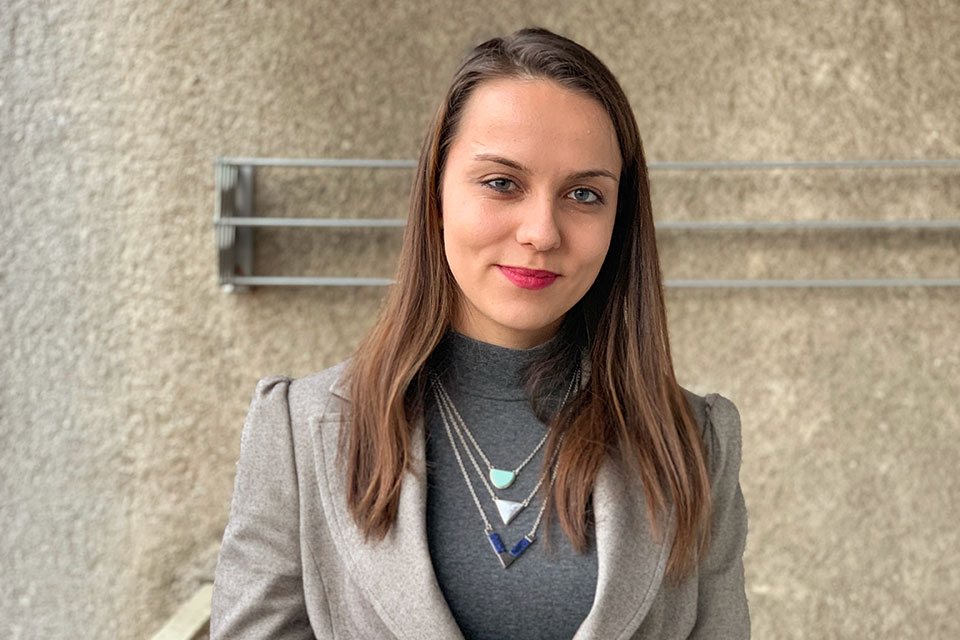From where I stand: “We fight prejudices by raising our voices”
Alexandra Tomasevic, 25, is an aspiring journalist, a literature student in Belgrade, Serbia, and she has cerebral palsy. Tomasevic has advocated for children and youth with disabilities since she was a young girl, and is a participant of UN Women’s mentoring programme.Date:

![]()
I am one of ten mentors at the mentoring programme where we get paired with other women with disabilities. Our job is to be a support system for our mentees and help them make their ideas come to life, improve the quality of their lives, and claim their rights to education and employment. If they are victims of violence, we help them get out of that situation and empower them to go through life on their own despite all the challenges they face.We give them guidelines instead of providing them with specific, ready-made solutions, because we want to empower them to empower themselves. That is our mission.
It’s important for women with disabilities to realize that they are not alone. The objective of this project is empowerment of women with disabilities by women with disabilities like me. We want to show our mentees how women with disabilities are just like all other women, equally strong and capable to achieve their goals in any way that theywish to.
The biggest problem is that we are always marginalized in some way as people with disabilities and face stigma. As a woman living with cerebral palsy, which is a physical disability, I can see how much people look at me differently, especially young people, which is surprising. I think this is because of fear, lack of knowledge and lack of information. They feel they should have a special approach toward us, as if we need special treatment to be who we are and to function in society. We need people to understand that there are some things that are different about us, but this just means that we have our own way of accomplishing things. Ittakes a bit more time and support, but we can achieve everything we set our minds to.
We fight prejudices by raising our voices. It is important to find support, because when there are more of us, we can make our voices heard. So, talk, discuss, have an open mind, and an open heart. That is the only way you can reach people. Be free to speak up for yourself.”
Alexandra Tomasevic is a vocal disability rights advocate in Belgrade, Serbia. In 2018, she became a mentor at UN Women’s "Mentoring Programme for Women and Girls with Disabilities”, implemented by FemPlatz and Women’s Peace Group Pancevo (WPG). As part of the project “Autonomy, Voice and Participation of Persons with Disabilities in Serbia”, jointly implemented by OHCHR, UNDP, UN Women, UNFPA, ILO and funded by UN Partnership on the Rights of Persons with Disabilities (UNPRPD), the Mentoring Programme motivates young women with disabilities to improve their lives, assists them with career and professional development, and raises public awareness about their success and the challenges.